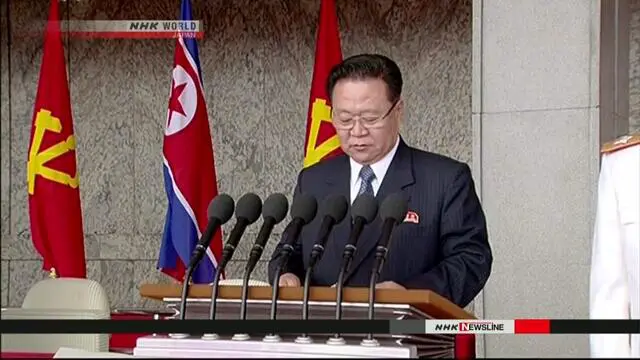As the Dow Jones Industrial Average climbed to an all-time high above 15,000 points last week, Zhang, a shoe factory owner in the Chinese city of Wenzhou, yearned to draw money from lackluster domestic markets and invest in U.S. stocks.
But he could not.
Two years ago, when Zhang (his surname) tried to buy a stake in a private American company, he could only get his yuan assets out of China through underground money exchangers.
China only allows a limited number of financial institutions to buy stocks and bonds overseas, as it fears demolishing its currency curb could trigger a capital flight and lead to instability of the financial market in the world's second largest economy.
"But now I see a bit of hope. Ordinary investors finally can anticipate access to diverse options," Zhang said.
China's cabinet pledged on Monday to steadily introduce market-oriented interest rate and exchange rate system reform measures, permitting individual investors to buy foreign equities and mapping out "operational" plans to make the Chinese yuan convertible under the capital acccounts.
"It's not a surprising move. The regulators have been inching towards an opened capital account," said Yao Wei, China economist with Societe Generale. "An opened capital account will make China's financial market more efficient, more transparent, and up to international standards."
Since China's cabinet did not provide a roadmap regarding easing control over the yuan, analysts believed the authorities will deal with the currency cautiously.
The People's Bank of China (PBoC) published a study last year, championing a cautious but forward-looking approach, recognizing that the country had already made significant achievements in liberalizing capital movements while maintaining a stable financial system, and risks for further deregulation are manageable.
"But no one said China would make significant moves this year. Actually this year is not a good time to open the capital account," said Liu Ligang, chief Greater China economist at ANZ Banking Group.
Capital inflows to China have been surging as indicated in recent trade data, and with major central banks pumping cheap money into financial markets, relaxing capital regulation would entice more hot money given big spreads between Chinese and foreign interest rates, according to Liu.
"Freeing capital flow this year will surely cause distortions in financial markets. With the U.S. economy picking up later, the capitals are set to run back to the States," Liu added.
Yu Yongding, a well-respected economist at the Chinese Academy of Social Sciences, a think tank, expressed worries about freeing capital flow as well.
"China should not rush to fully give up capital control," Yu said. "We're in a time of economic and financial uncertainties, and the capital control is a firewall. Though the firewall is leaking, it's better than not having one."
China could adopt a strategy that promotes easier and less risky reforms at first, namely deregulating direct investments in three years, and then move on to higher-stakes items like real estate and bond trading in five to ten years, according to the PBOC study authored by the central bank's financial survey and statistics chief Sheng Songcheng.
Analysts assume the Chinese central bank will expand the yuan's trading band against the dollar to 2 percent by the end of 2013.
"It's not a good time to widen the band. The money inflow is so severe at the moment," said Chang Jian, China economist with Barclays Capital. She suggested the authorities could instead allow individual investors to seek opportunities aboard.
Economists said to facilitate the liberalization of the capital account, China must ratchet up its financial reform, which means higher efficiency, stronger competition, a bigger bond market and lower risks involved with local governments' debt.
"The first step is to liberalize China's interest rates. The sooner the better," Chang said.
The Chinese central bank set benchmark interest rates for the market and only allows them to float within the floor of lending rates and the ceiling of deposit rates. Last year, the central bank expanded the range twice. Further relaxation is expected in the second half of the year.
Chang added cultivating the bond market will improve the country's financial efficiency as well.
As big companies get funding directly from selling bonds, state-owned banks will more likely lend money to medium-sized and small enterprises, which are cash-strapped.
Sheng and his colleagues at the central bank noted in another study published last year that deregulation of interest and currency exchange rates can be coordinated with the yuan's internationalization and the relaxation of capital controls.
"Whenever opportunity for any aspect of reform becomes ripe, we must carry it forward," the paper said.
China has been pushing the yuan out of its borders with equities worth more than 900 billon yuan (146.5 billion U.S. dollars) traded offshore. So far, China has signed currency swap agreements with more than 20 countries, which totaled 1.7 trillion yuan.
It also doubled the yuan's trading band against the U.S. dollar to 1 percent from the middle of 2012. Yuan's unilateral appreciation has also ended, as the currency entered to a state which China's foreign exchange chief Yi Gang called "equilibrium."
Chinese central bank officials, however, repeatedly said the country will not completely give up its capital control.
"China opens its capital account with some reserve," Yao, the Societe Generale economist said.
"China's capital regulation will not be as relaxed as Singapore's or Hong Kong's. In several years, the degree of openness may be close to that of the Republic of Korea," Yao added.
 简体中文
简体中文

